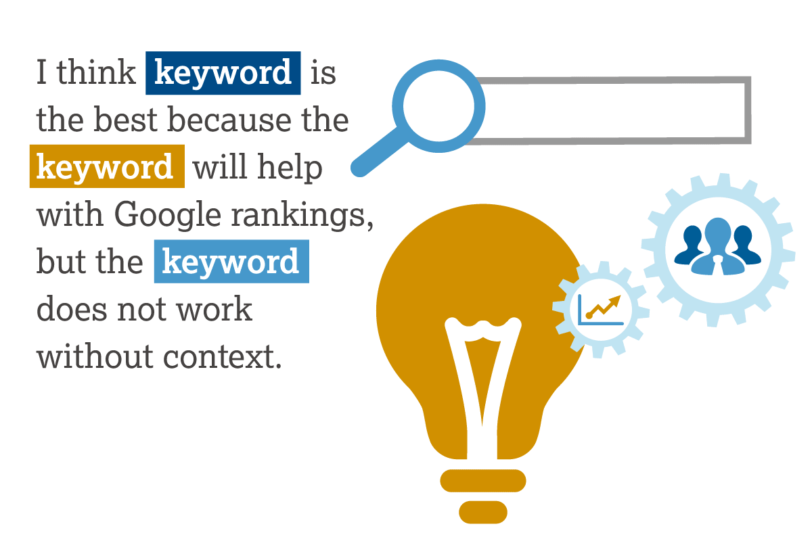How Important Are Keywords for SEO?
In the early days of digital marketing, good SEO meant keywords—and lots of them. In an attempt to rank higher on the search engine results page, SEO experts loaded website content with keywords, many times without any context.
Times have changed. Google now penalizes websites for “keyword-stuffing,” which Google describes as “loading a webpage with keywords or numbers in an attempt to manipulate a site’s ranking in Google search results.” Keyword-stuffing, says Google, “results in a negative user experience, and can harm your site’s ranking.”
According to Google, keyword-stuffing can include:
- Long lists of keywords without any context or added value
- Blocks of text listing cities and states a webpage is trying to rank for
- Repeating the same words or phrases so often that it sounds unnatural
These days, Google ranks pages based on how relevant and valuable they are to the reader, so a page with a list of keywords but without any supporting content, or with content that is clearly written to use multiple keywords rather than provide useful information, will be penalized by Google.
Keywords themselves are less crucial for search rank than they used to be. A study of ranking factors by SEMRush found that keywords were less important than 11 other ranking factors, including site visits, time on site, bounce rate, backlinks, and content length.
According to the report, keyword usage is one of the most popular SEO techniques, but “the presence of keywords in title, meta description and body of the text proved to be significantly less influential than other factors.”
Using Keywords Effectively
Keywords are still important, you just need to use them the right way. According to Google, your goal should be to “focus on creating useful, information-rich content that uses keywords appropriately and in context.”
Google is getting better at understanding user intent and measuring content relevance, which means it’s able to see beyond what a user types into a search box to understand what they’re really looking for, and to deliver results that fulfill that need. Because of that, content should be written for the user, not for the keyword.
There is still a correlation between keyword-rich content and rank, however. According to the SEMRush report, “over 75% of the top-20 pages have keywords in their body and over 60% have them in their title.”
So keep those keywords in your content, but be sure they appear in a natural context, and that your content provides real value to your site visitors. If you write valuable content that will be useful to readers who have come to your site through a keyword search, your keywords will probably occur naturally in your content, and Google will reward you with a higher search rank.
For help with services like SEO, Web Design and Development, Ecommerce Web Development, Content Marketing, Digital Marketing Planning, and Performance Audits, contact Digiwebart today.




